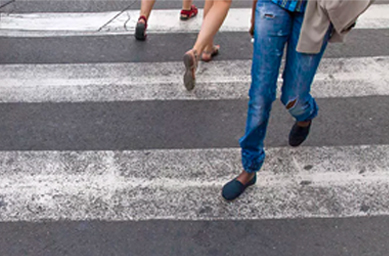In late May, General Motors settled a lawsuit filed by a California motorcyclist who was injured in an accident involving one of the automaker’s autonomous vehicles. According to the lawsuit, which was filed in January in the U.S. District Court in San Francisco, the rider claimed he was struck by a Cruise AV that aborted a lane change, swerved into his lane, and knocked him to the ground, causing injuries that left him unable to work.
At the time of the crash, the Cruise AV was operating in self-driving mode, the suit further claims, and a backup driver was sitting in the driver’s seat with his hands off the wheel. A police report, however, states that John Nilsson had attempted to pass the autonomous vehicle before it was safe, and was to blame for the accident. Still, GM reached a settlement with the motorcyclist in May, and announced the following day that it would invest over $2 billion into refining its self-driving technology with a prominent tech company.
Self-Driving Cars, Auto Accidents & Future Concerns
In what was one of the first accident lawsuits involving a self-driving car, this particular case garnered national attention for raising questions that may soon become increasingly common as autonomous vehicles are commercialized and integrated onto U.S. roads. Here are a few of the most important issues raised:
- Liability – While automakers and others are hopeful self-driving vehicles will help reduce rising rates of auto accidents and traffic deaths, experts have raised concerns that not only will accidents likely still occur, those accidents will introduce difficult questions about who can be held responsible for causing them, and thus liable for any damages suffered by victims.
- Humans or Robots – One of the primary issues in determining responsibility for autonomous vehicle crashes involves questions over whether a human or the self-driving technology powering vehicles is to blame. This is especially true when humans, who despite having the ability to intervene and regain control of a vehicle being operated autonomously, argue that the technology is at fault and that automated systems should be able to avoid questionable collisions or can be improved.
- Reliance on Data – Investigations into issues of fault and liability involving self-driving vehicle crashes are expected to become increasingly reliant on data captured by the vehicle’s technology systems, as well as any other available data. While being able to replay or dissect what happened in a new crash may be a good thing in some cases, it can also open a can of worms and introduce new questions and uncertainties.
- Blaming Victims – As was the situation with the GM lawsuit, accidents involving self-driving vehicles may result in victims being blamed, in whole or in part, for causing or contributing to a wreck with an autonomous car. Not only does this create questions of how any percentage of fault can be assigned to a self-driving car, but also whether a human driver in a similar situation would have been able to avoid such a collision. Had a human motorist been operating the Cruise AV at the time, for example, would they have avoided swerving into the motorcyclist? Add to this difficult question the fact that the police report noted not only that the motorcyclist attempted an unsafe pass, but also that the backup driver in the AV saw the rider before he was struck, but did not have enough time to intervene and swerve to avoid him, and it becomes readily apparent how difficult these issues truly are.
Although the lawsuit between the injured motorcyclist and GM has been settled out of court – a move that was likely PR-motivated – it will surely not be the last to involve accidents and injuries involving a self-driving car, nor will it end the many questions they raise when it comes to fault and liability.
Tough Cases Demand Proven Insight
If there is any takeaway from this lawsuit, it is that these issues and questions should be prioritized just as much as automakers are prioritizing safety and the overall advancement of self-driving vehicles. That, like improved autonomous technology, will likely be a process that unfolds over time, and, unfortunately, because of more accidents.
At Todd Miner Law®️, our legal team has cultivated a reputation for our work in personal injury in part because we focus on the evolving issues and laws that affect the clients we represent. As a former insurance defense lawyer for one of the nation’s largest insurers, Attorney Todd Miner is able to not only leverage insight into how insurance companies handle injury claims, but also the difficult concepts involved in arguing fault and liability. Todd’sinsurance background and that of his team, has proved invaluable for our clients, and will continue to drive our firm as we tackle tough issues in the future.
For more information about our firm and the services we provide, or to discuss a potential car accident case with a member of our team, contact us for a free consultation.







